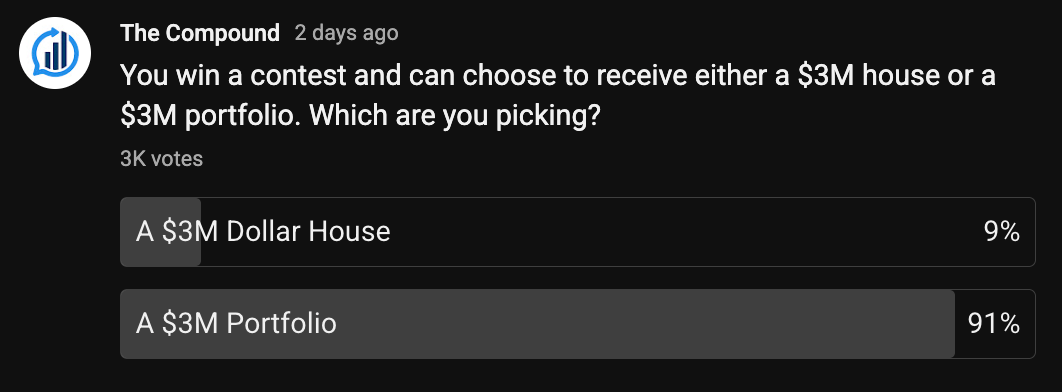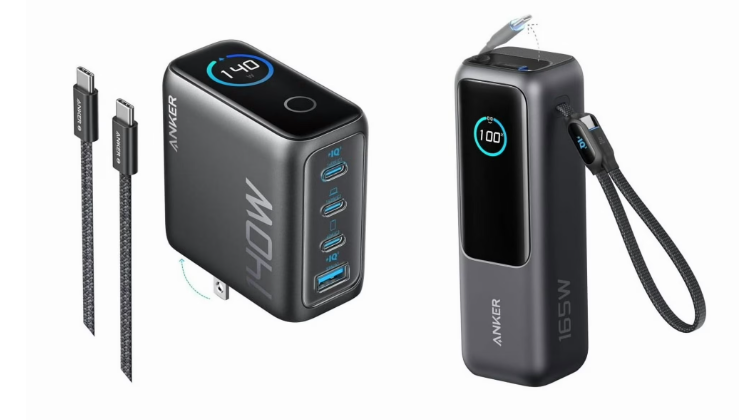Investors have more options than ever before to invest in real estate indirectly. And one of the easiest ways to do so is through real estate crowdfunding.
An early success story, Fundrise helped popularize the concept among mom-and-pop investors. They offer private REITs (real estate investment trusts) to non-accredited investors at a minimum investment of just $1,000, plus more advanced investments for accredited investors. But they’re far from the only real estate crowdfunding player today, and many investors have started looking for fresh ways to diversify their portfolios.
Keep the following best Fundrise alternatives in mind as you explore fresh investment options.
Real Estate Crowdfunding for Non-Accredited Investors
Because most of us are not accredited investors — with a net worth over $1,000,000 or income over $200,000 ($300,000 for married couples) — the U.S. government doesn’t allow us to invest in the same opportunities as wealthier investors.
Fortunately, ever more real estate crowdfunding companies allow non-accredited investors to participate.
As for management fees, real estate crowdfunding platforms make all sorts of claims about them.
But the simple truth is that they have endless ways to hide costs that line their own pockets if they want to, such as handling maintenance in-house and overcharging for it. Look at their net returns, past and projected, rather than fixating on promises of low or no fees.
Consider the following ways to invest in real estate without ever actually taking title.
1. Streitwise
Minimum Investment: $5,000
While Fundrise focuses on residential real estate investing, such as apartment complexes and single-family rentals, Streitwise focuses on commercial and mixed-use properties.
They aim for an annual dividend yield between 8% and 9%, and have consistently delivered at least that since their inception. That includes during the coronavirus pandemic, when commercial office buildings got hit harder than most industries.
Investors may enjoy appreciation in share prices as well, although share prices are controlled by Streitwise, not traded on the open market.
Thus far they’ve barely budged, so invest for the dividend and consider any appreciation gravy.
Speaking of selling, don’t count on doing so for the first five years. Like most real estate crowdfunded investments, shares are designed for long-term holding.
Streitwise invests primarily in second-tier cities, such as Indianapolis and St. Louis. They eschew the overpriced coastal markets like San Francisco or New York.
I myself have some money invested with Streitwise and have found them a reliable source of passive income.
But anything could happen, and as corporate finance lawyers always insist, past performance does not indicate future results.
Still, I’ve set up an automated monthly investment combined with dividend reinvestments, and have no cause for regrets yet.
Learn More
2. Diversyfund
Minimum Investment: $500
Employing an opposite investment model, Diversyfund pays no dividends at all, with the returns slated for appreciation.
Diversyfund invests primarily in apartment complexes across the United States, similar to Fundrise. They reinvest all profits back into buying more properties, in an effort to build a large, diversified portfolio.
Diversyfund’s Growth REIT is an illiquid long-term investment: they expect you to leave your money in for at least five years. Don’t invest any money you might need any time soon in their real estate investment platform.
One advantage to Diversyfund over many crowdfunding platforms is the low minimum investment.
You can get started with as little as $500, one-tenth of the minimum for competitors like Streitwise or RealtyMogul (more on them shortly).
For more details, check out our full review of Diversyfund.
Learn More
3. GroundFloor
Minimum Investment: $10
A personal favorite, I love GroundFloor’s model precisely because it’s so different from all the others.
GroundFloor is a hard money lender, specializing in lending short-term loans to house flippers. So, unlike equity crowdfunding where you pool money to own an infinitesimal stake in properties, you help fund loans secured against real property.
Of course, Fundrise owns some secured debts as well. What really sets GroundFloor apart is that you get to pick and choose the loans you want to fund.
They range in interest rate from 6.5% to 14% or so, and GroundFloor grades them by risk.
And the real kicker: you can put as little as $10 toward any given loan. That makes GroundFloor the most accessible real estate crowdfunding platform on the market.
Alternatively, you can invest money directly with GroundFloor for them to lend as they see fit. But expect slightly lower returns — they currently max out at 7% for a one-year commitment, and require a $1,000 minimum investment.
Sticking with “B” and “C” grade loans, I earn 9% to 9.5% on my money with GroundFloor. As long as the loan stays below 70% of the property value, I feel confident that GroundFloor can foreclose and recover all or most of my money if the borrower defaults.
Because GroundFloor lends to flippers, the loans only last around six to 12 months.
That makes GroundFloor exceptional among crowdfunded investments for the quick turnaround as well.
Learn More
4. RealtyMogul
Minimum Investment: $5,000
RealtyMogul offers two private REITs for non-accredited investors, plus private placements with specific properties for accredited investors. The latter give you fractional ownership in an individual property or small group of properties.
The first of these, creatively named MogulREIT I, pays monthly dividends at a 6% annual rate. It’s more income-oriented than growth-oriented, and investors should expect only modest long-term share price appreciation.
The fund owns a blend of multifamily properties, retail space, and office buildings across the U.S.
Their other fund, MogulREIT II, balances more growth potential with a lower dividend yield. It pays quarterly dividends at a 4.5% annual rate. Unlike MogulREIT I, the fund exclusively invests in multifamily apartment buildings.
Both funds require a minimum investment of $5,000.
While still designed as a long-term investment, RealtyMogul allows you to sell back your shares after one year with only a small (2%) penalty. That drops to 1% after two years, and after three years you can sell your shares back for the current share price.
Most real estate crowdfunded REITs require a five-year investment or longer, with stiffer early sale penalties.
Learn More
5. Yieldstreet
Minimum Investment: $1,000
In a fresh twist, Yieldstreet’s Prism Fund owns more than just real estate. It also owns alternative investments like fine art, consumer debt, corporate debt, and other assets.
Non-accredited investors may only invest in the Prism Fund. Accredited investors can also invest in a custom portfolio of cherrypicked assets owned by the Prism Fund, plus short-term notes (loans).
Investors earn money from impressive 8% dividend yields, plus the potential for appreciation.
Less impressively, Yieldstreet dislaims in the fine print: “The Fund’s distribution may exceed its earnings. Therefore, a portion of the Fund’s distribution may be a return of the money you originally invested and represent a return of capital to you for tax purposes.”
In other words, those 8% dividends may not be dividends at all. If Yieldstreet’s investments don’t perform, they can retroactively claim that the dividend payments were actually just returning your original investment to you.
Consider yourself warned.
On the plus side, they allow you to get started with a reasonable $1,000 minimum investment. Yieldstreet’s Prism Fund could earn exceptional returns for you — or not at all, so classify this one as higher risk, higher return potential.
Learn More
6.
Roofstock
Minimum Investment: Full price of a rental property
While not a real estate crowdfunding platform, Roofstock does make it easy to invest in rental properties directly.
It operates as a platform for buying and selling turnkey rental properties. Some of these properties already have tenants in them, and others are ready to rent.
Roofstock shines in its transparency. That starts with their fee structure, with relatively low fees charged to both sellers and buyers based on the purchase price.
But their transparency extends to property listings, designed to make long-distance real estate investors comfortable buying properties sight-unseen. Listings typically include home inspections, neighborhood data, tax assessment history, information about local schools, even local property value projections.
And that’s on top of all the details about the property’s performance, such as rents, cap rates, and projected expenses.
If you’d rather buy real estate directly than invest in shares in a fund, consider buying a turnkey property through Roofstock. Read our full comparison between Fundrise and Roofstock for more information.
Learn More
Fundrise Alternatives for Accredited Investors Only
If you’ve already achieved accredited investor status, you have more options than the average Joe.
Explore these real estate crowdfunding investments currently available only to high net worth investors.
7. CrowdStreet
Minimum Investment: $25,000
CrowdStreet had dipped its toes in the waters of raising money from non-accredited investors with its Impact Housing REIT and Medalist Diversified REIT. But CrowdStreet has since closed both funds, and at the time of this writing offers no investments for non-accredited investors.
They do offer flexible, high-return investments for accredited investors however.
You can pick individual properties to invest in, ranging from apartment buildings to hotels to mixed-use buildings to self-storage complexes. Or you can invest in one of their funds that blend returns from several real estate projects.
Some of their properties yield as much as 12%, and many include total return targets as high as 30% per year. CrowdStreet also includes options for more advanced tax maneuvers such as 1031 exchanges and investing in properties through a self-directed IRA.
Unfortunately, they require high minimum investments. The lowest currently available is $25,000, and some of their investments require as much as $150,000.
For diversified high returns, CrowdStreet has a strong track record.
Just don’t expect to test them out with a trivial investment in the beginning.
Learn More
8. EquityMultiple
Minimum Investment: $10,000
While not exactly simple, EquityMultiple offers flexible and advanced ways to invest in commercial real estate.
That includes senior debt, mezzanine debt, preferred equity, common equity, opportunity funds, and more traditional private REIT funds. They vary by risk and return, and by the length of commitment. Their shortest commitment is only six months, which is a breath of fresh air in the world of locked real estate crowdfunding.
EquityMultiple also allows tax strategies such as 1031 exchanges and investments in Qualified Opportunity Zones.
According to the company, they’ve delivered an average return of 14.5% to their investors so far.
Not too shabby.
But like most crowdfunding platforms exclusive to accredited investors, their minimum investment isn’t cheap. At the lowest end, they allow $10,000, but some investments require many times that amount.
Learn More
9. AcreTrader
Minimum Investment: Varies, typically $20,000 to $25,000
Unlike typical real estate crowdfunding that pursues commercial properties and apartment complexes, AcreTrader invests in farmland.
The company asserts that farmland has outperformed the S&P 500 over the past few decades, making it an unsexy but high-performance asset class. In a rather nifty chart, they showcase how farmland has performed since 1990 against other assets.
Their claim: $10,000 invested in farmland would be worth over $199,700 today.
AcreTrader also makes a strong case that farmland is a safer investment than most, with low volatility and high returns. And it certainly offers a nice hedge against inflation, like most real assets.
You get to pick and choose which farm deals you want to invest in — but they only have a few open at any given time. Typical deals pay around 3% to 4% dividend yield, with total expected annual returns in the 8% to 9% range. That said, some of their deals have paid out dividend yields over 12%, with total returns in the teens.
Each deal comes with its own minimum investment as well.
Expect a minimum investment in the $20,000 to $25,000 range for typical deals.
For wealthy investors looking to diversify, AcreTrader makes a strong case.
Learn More
10. FarmTogether
Minimum Investment: $15,000
FarmTogether serves as AcreTrader’s primary competitor in the farmland crowdfunding market.
They pay similar returns, claiming dividend yields in the 3% to 9% range and total returns ranging from 7% to 15% annually. While they require long-term commitments of five to 12 years, they’ve launched a pilot program for selling shares on the secondary market for investors who want to sell sooner.
For investors who want to own farms exclusively, FarmTogether offers sole ownership bespoke offerings. But plan on laying out $1,000,000 or more to own a farm by yourself.
FarmTogether does offer access to 1031 exchanges, for both their fund offerings and their sole ownership investments.
Learn More
Final Word
As a Fundrise investor myself, I haven’t been unhappy per se with their returns.
But I don’t like that they removed the expected returns for different funds from their website, and for all their portal’s glossiness, I don’t really like their performance reporting.
Still, I’m a huge proponent of real estate crowdfunding as an easy diversification strategy and complement to stocks. With strong returns and low volatility — albeit with low liquidity — they balance each other well. They serve as a source of passive income in my plans for reaching financial independence at a young age.
I spread my real estate crowdfunding dollars out among several investment platforms, including but certainly not limited to Fundrise. Start small to get a sense for how they work and to gauge your own comfort, and expand your investment portfolio from there as you grow more comfortable.
Original Article






